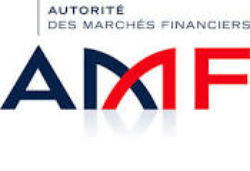Compliance and Regulation Law Glossary

Access is a key concept in regulation since only a competitive market allows access for all to becom offerers and applicants. This is why regulations and regulators intervene ex ante to force access to natural monopolies, such as transport networks, for the benefit of other operators. Thus, Regulation compensates for market failures by imposing access. In addition to these access imposed for technical reasons, the Politics can still intervene to force for all access to common goods, such as culture, health, education, referring to the Social Contract. The foundation, political, is different.

The concept of 'agency', sometimes confused with the one of 'Regulator', designates a way of deconcentrating the State. Away from a Jacobin outlook, states have indeed gradually devolved their sovereign responsibilities to other institutions, which are often geographically distant from the state's political capital city. These agencies are a form of technical decentralization because they are in charge of operational tasks and specific expertise, e.g., as regards employment, environment or health issues. This model, which is very common in Scandinavian countries, is often associated with federal outlooks, like in the United States. It is still fairly remote to the French model that remains to this day built on the idea of a centralized state. So far, France has only developed a few agencies (e.g., France Trésor, tasked with managing France's government debt and cash positions, or the Regional Health Agencies).
In a different perspective, although the two notions are homonyms, the American financial theory developed the notion of 'agency' to describe the relationship between the corporate officer (the agent) and the shareholder (the principal), who empowers the first to act on his behalf to serve his interest. Information asymmetry and conflict of interest mark this relationship, which explains that this theory helped developing multiple safeguards, conveyed by the Financial Regulation.

The airline industry was the first regulated sector in the 1920s This reflects the fact that air transport implies that people can travel from one state to another state, which justified an early multilateral system of international agreements between States , under public international law, each retaining its share of sovereignty and its national company (eg. British Airways).
But the principle of competition making the organization more complex through the mechanisms of open sky that allow an airline company to offer its services abroad, regulation must be more open to competition.
In addition, the regulation of air cares more risks by adopting global safety standards to be imposed on all operators in the conduct and maintenance procedures of the equipment.
Asymmetry: asymmetric regulation / asymmetry of information





